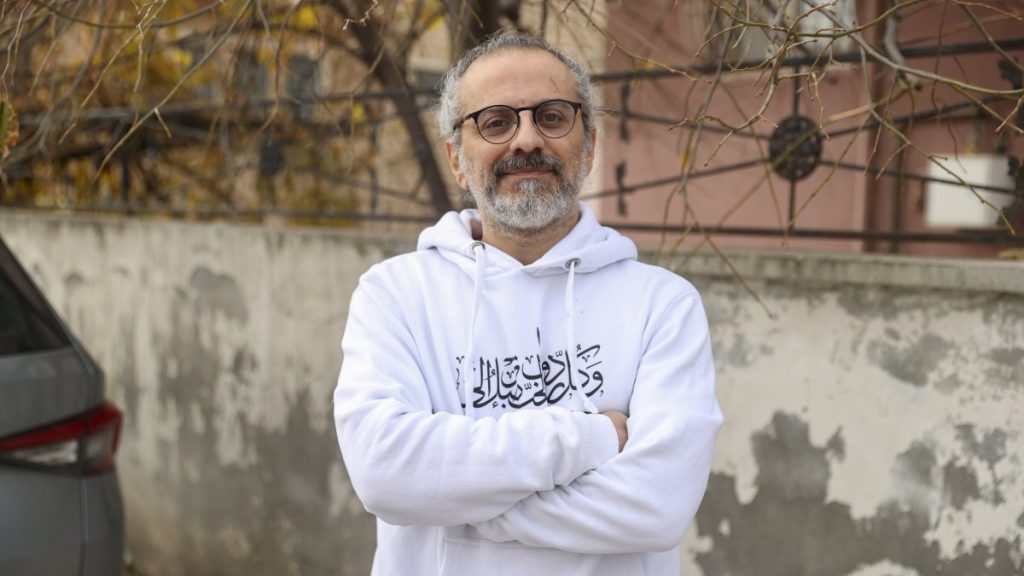The YPG, the Syrian offshoot of the PKK terrorist group, indiscriminately tortures anyone who opposes it in Syrian cities it is occupying, according to an ex-Syrian detainee.
Barry Abduluttif, an activist who worked in several cities under siege by the deposed Assad regime from 2011 to 2014, fled to Türkiye after his hometown of al-Bab was occupied by the Daesh terror group.
Abduluttif returned to Syria in 2017 to meet activists opposing Assad and the PKK/YPG terror organization.
He was stopped, however, at the entrance to the Qamishli district by members of the PKK/YPG.
He was interrogated in a house and held captive by the terrorist group for about a month.
Abduluttif told Anadolu Agency (AA) that the PKK/YPG accused him of being a member of Daesh and a spy.
After the interrogation, they blindfolded Abduluttif and put him into a vehicle.
“They drove me around aimlessly for two hours, then took me to a vineyard house near what I believe was the Turkish border. Just as they were about to torture me, some friends who had previously invited me to the city intervened,” he said.
Torture was narrowly avoided, he added.
“They have a specific method to avoid accusations of torturing detainees – conduct interrogations first and then carry out torture in secluded vineyard houses.”
This is done to maintain their reputation abroad and claim they do not torture in prisons, he said.
“During my time there, other detainees told me the same thing,” said Abduluttif. “Most of them said they had endured severe torture outside the prison. They described brutal sessions lasting a week, 15-20 days, sometimes leading to death.”
‘They torture Kurds, too’
Abduluttif said PKK/YPG terrorists used code names instead of real identities while torturing victims.
“They don’t just torture Arabs, they also torture Kurds who oppose them.”
“After I was released, the Kurdish friends I met there told me they had also fled to Türkiye, Europe and Irbil because of the PKK/YPG,” he said.
During interrogation, they kept asking him if he knew the Kurdish activists opposed to the PKK/YPG, Abduluttif stressed.
After being removed from the vineyard house, Abduluttif said he was blindfolded again and taken to a prison in Qamishli, where he was held for another 15 days.
He said he was not tortured during his detention but could hear the sounds of others being tortured.
“I have no idea why I was detained,” said Abduluttif.
He described the prison as terrible with insufficient food.
“There was no water, and there was nowhere to bathe. Once, they took us outside and sprayed water on us as if we were animals. After 15 days, I was released,” he said.
The PKK/YPG found freedom of movement when Syria was mired in a civil war and sought to legitimize itself through a so-called autonomous administration. Their self-styled entity benefited from the vast military assistance of the United States, which partnered with the YPG under the guise of fighting Daesh.
Local people living in areas held by the YPG/PKK have long suffered from its atrocities, as the terrorist organization has a notorious record of human rights abuses, ranging from kidnappings, recruitment of child soldiers, torture, ethnic cleansing and forced displacement in Syria.
Türkiye launched several cross-border operations after 2016 to end the terrorist group’s oppression and prevent the formation of what Ankara calls a terror corridor along its borders.
The Türkiye-backed Syrian National Army (SNA) currently has the group cornered in northeastern Syria amid escalating tensions in the aftermath of Bashar Assad’s overthrow.


